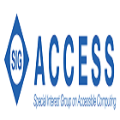Decision makers involved in the management of civil assets and systems usually take actions under constraints imposed by societal regulations. Some of these constraints are related to epistemic quantities, as the probability of failure events and the corresponding risks. Sensors and inspectors can provide useful information supporting the control process (e.g. the maintenance process of an asset), and decisions about collecting this information should rely on an analysis of its cost and value. When societal regulations encode an economic perspective that is not aligned with that of the decision makers, the Value of Information (VoI) can be negative (i.e., information sometimes hurts), and almost irrelevant information can even have a significant value (either positive or negative), for agents acting under these epistemic constraints. We refer to these phenomena as Information Avoidance (IA) and Information OverValuation (IOV). In this paper, we illustrate how to assess VoI in sequential decision making under epistemic constraints (as those imposed by societal regulations), by modeling a Partially Observable Markov Decision Processes (POMDP) and evaluating non optimal policies via Finite State Controllers (FSCs). We focus on the value of collecting information at current time, and on that of collecting sequential information, we illustrate how these values are related and we discuss how IA and IOV can occur in those settings.
翻译:参与民事资产和系统管理的决策者通常在社会规章的限制下采取行动,其中一些制约因素与缩略语数量有关,即发生故障的概率和相应的风险。传感器和检查员可以提供有用的信息,支持控制过程(例如资产的维护过程),关于收集这种信息的决定应依赖对成本和价值的分析。当社会规章将不符合决策者的经济观点纳入其中时,信息的价值(VoI)可以是负面的(有时是伤害的),几乎无关的信息甚至对在这种缩略语限制下行事的代理人具有重大价值(正面或负面的)。我们将这些现象称为信息避免(IA)和信息估价(IOV),在本文中,我们说明如何评估VoI在根据(社会规章施加的)的缩略限制作出先后决策时,通过模拟一个部分可观测的Markov决定过程(POMDP),以及通过Finite State Covercers(FSC)评价非最佳政策,我们如何在收集当前信息时,我们如何在排序中评估这些价值,我们如何在IOV的顺序上讨论这些价值。




